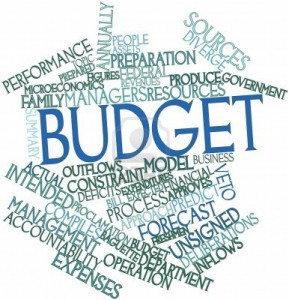The financial needs of family are the sole purpose for securing a good life insurance policy. In the event of unfortunate disability or death of a loved one that brings money into the home, a family’s lifestyle can change drastically. Losing a loved one is quite devastating as it is. Not being able to pay the light bill or put food on the table only makes an already bad situation worse.
The costs of funeral services have become so expensive over the years that the thought of not having life insurance can be frightening. Most families do not have thousands of dollars to spend at the drop of a hat. They also may not have anyone that could or would be willing to foot such a bill. The loss of transportation or a place to live becomes threatened when the finances dry up. The small monthly life insurance payments are well worth it.
Knowing the importance of life insurance, it is safe to say that there is no better time to find the right policy that can best meet future needs. Studying the differences between the two policies that are available will help consumers make an informed decision. The two policies, “whole life” and “term life”, have been around for many years and you can get quotes and information at rootfin.com for both types of life insurance.
A consumers household income is a good place to start when determining the coverage that is needed. Taking into account the many “what-ifs” that seem to arise in emergency situations, more coverage may be needed which means a higher payment each month. The more expensive of the two policies is whole life because it can be used prior to death.
Age and current health status can affect the price of coverage. An ill and/or aged individual can expect higher rates than someone younger and healthier.
Insurance agents are more than happy to answer any questions a consumer may have. A well prepared agent will know the details of the policies and how a consumer can benefit.
 When you purchase life insurance, you will be asked to provide a wide range of details about your health status. Some of these relate to your age and gender, and others will relate to your height, weight and lifestyle factors. In addition, you may be asked if you have an underlying medical condition, which prescription medications you take regularly and other related questions. Some issues pertaining to your physical health may affect the cost of your life insurance, and others may affect your ability to obtain coverage at all. Understanding what these factors are and how they can relate to your ability to obtain coverage is imperative to finding the right coverage for your needs with a low rate.
When you purchase life insurance, you will be asked to provide a wide range of details about your health status. Some of these relate to your age and gender, and others will relate to your height, weight and lifestyle factors. In addition, you may be asked if you have an underlying medical condition, which prescription medications you take regularly and other related questions. Some issues pertaining to your physical health may affect the cost of your life insurance, and others may affect your ability to obtain coverage at all. Understanding what these factors are and how they can relate to your ability to obtain coverage is imperative to finding the right coverage for your needs with a low rate. Many people wonder whether or not purchasing life insurance is necessary. Most people will agree that having health insurance, auto insurance and homeowners insurance are all essential, however, when it comes to life insurance, many people will put off investing in themselves. It is easy to delay purchasing life insurance, however, life insurance provides both you and your family with many vital benefits.
Many people wonder whether or not purchasing life insurance is necessary. Most people will agree that having health insurance, auto insurance and homeowners insurance are all essential, however, when it comes to life insurance, many people will put off investing in themselves. It is easy to delay purchasing life insurance, however, life insurance provides both you and your family with many vital benefits.
 You can lay out all the financial plans and goals you want, but in order to have any hope of growing your finances from a mustard seed to a great mustard tree, it has to start with setting and sticking to a budget. This is the first step, yet it is one that so many fail to do. Many start and quickly abandon the idea. If you are going to have any hope of achieving your financial goals, a budget is something you must master.
You can lay out all the financial plans and goals you want, but in order to have any hope of growing your finances from a mustard seed to a great mustard tree, it has to start with setting and sticking to a budget. This is the first step, yet it is one that so many fail to do. Many start and quickly abandon the idea. If you are going to have any hope of achieving your financial goals, a budget is something you must master.